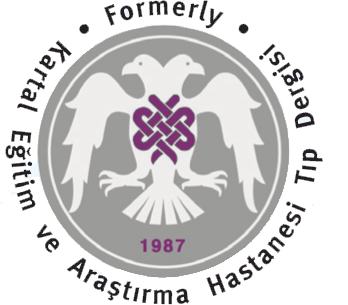Analysis of Pancreatitis Severity Scores and hospitalization length of Diabetic and Non-diabetic Patients with Nonbiliary Acute Pancreatitis
Meryem Dumlu1, Banu Boyuk1, Tunahan Refik Dumlu2, Hande Erman11Department of Internal Medicine, University of Health Science, Kartal Dr. Lütfi Kırdar City Hospital, İstanbul Türkiye2Department of Radiology, University of Health Science, Kartal Dr. Lütfi Kırdar City Hospital, İstanbul Türkiye
INTRODUCTION: Many studies have compared scoring systems in the course of acute pancreatitis (AP), but comparative analyses of scoring systems in patients with diabetes are limited. In our study, we aimed to compare patients using more than one scoring system and also to investigate whether there was a scoring system that could be preferred in predicting the length of hospital stay (LOS) in individuals with diabetes.
METHODS: Mild and moderate-severe acute pancreatitis patients who were followed up with AP in the internal medicine clinic were evaluated retrospectively. The diagnosis of AP was confirmed in accordance with the revised Atlanta criteria. AP with mild and moderate severity was the inclusion criteria. Patients with severe pancreatitis were excluded. Patients with and without diabetes were analyzed according to demographic characteristics, laboratory and imaging findings in two groups. Ranson, Systemic Inflammatory Response Syndrome (SIRS), Bedside Index of Severity in Acute Pancreatitis (BISAP), Modified Glasgow II Scoring (IMRIE), Harmless Acute Pancreatitis Score (HAPS), Balthazar, and Computed Tomography Severity Index (CTSI) scores were calculated on admission.
RESULTS: AP patients with diabetes had higher serum triglyceride, leukocyte, CRP, and pro-calcitonin levels (p<0.05). Serum amylase levels were slightly higher in non-diabetic patients (p<0.05). The presence of diabetes was positively correlated with Ranson on admission, SIRS, and Imrie scores (p<0.05; r=0.437; r=0.274; r=0.317). Among severity scores, only the CTSI score was significantly higher in patients with >7 days LOS (p<0.004). In addition, while there was no difference in LOS according to the presence of DM (p=0.840), mean HbA1c values were higher in patients with longer LOS (p=0.037). As a result of regression analysis, male gender and higher CTSI scores were related to increased LOS (OR=0.266, p=0.037 vs OR=1.579, p=0.022).
DISCUSSION AND CONCLUSION: Among the scoring systems, IMRIE, SIRS, and Ranson scores were higher in mild-moderate AP patients with diabetes compared to non-diabetic patients. In addition, male gender and higher CTSI scores were associated with increased LOS in this specific patient group.
Keywords: Acute pancreatitis severity scores, diabetes, length of hospital stay.
Nonbiliyer Akut Pankreatit ile Takip Edilen Diyabetik ve Non-diyabetik Hastaların Pankreatit Şiddet Skorları ve Hastane Yatış Sürelerinin Değerlendirilmesi
Meryem Dumlu1, Banu Boyuk1, Tunahan Refik Dumlu2, Hande Erman112
GİRİŞ ve AMAÇ: Akut pankreatit (AP) seyrinde skorlama sistemlerini karşılaştıran birçok çalışma vardır, ancak diyabetli hastalarda skorlama sistemlerinin karşılaştırmalı analizleri sınırlıdır. Çalışmamızda birden fazla skorlama sistemi kullanan hastaları karşılaştırmayı ve diyabetli bireylerde hastanede kalış süresini (HKS) tahmin etmede tercih edilebilecek bir skorlama sisteminin olup olmadığını araştırmayı amaçladık.
YÖNTEM ve GEREÇLER: Dahiliye kliniğinde AP ile takip edilen hafif ve orta şiddetli akut pankreatit hastaları geriye dönük olarak değerlendirildi. Diyabetli ve diyabetsiz hastalar demografik özellikleri, laboratuvar ve görüntüleme bulgularına göre iki grupta incelendi. Ranson, Sistemik İnflamatuvar Yanıt Sendromu (SIRS), Akut Pankreatitte Yatak Başı Şiddet İndeksi (BISAP), Modifiye Glasgow II Skorlaması (IMRIE), Zararsız Akut Pankreatit Skoru (HAPS), Balthazar ve Bilgisayarlı Tomografi Şiddet İndeksi (CTSI) skorları hesaplandı.
BULGULAR: Diyabetli AP hastalarında serum trigliserit, lökosit, CRP ve prokalsitonin düzeyleri daha yüksekti (p<0.05). Diyabetik olmayan hastalarda serum amilaz düzeyleri biraz daha yüksekti (p<0.05). Diyabet varlığı, başvuru anında Ranson, SIRS ve Imrie skorları ile pozitif korelasyon gösterdi (p<0.05; r=0.437; r=0.274; r=0.317). Ciddiyet skorlarından sadece CTSI skoru >7 günden fazla yaşam süresi olan hastalarda anlamlı olarak daha yüksektir (p<0.004). Ayrıca DM varlığına göre HKSta farklılık görülmezken (p=0.840), HKSsi yüksek olan hastalarda ortalama HbA1c değerleri daha yüksekti (p=0.037). Regresyon analizi sonucunda erkek cinsiyet ve daha yüksek CTSI puanı artan HKS ile ilişkilidir (OR=0.266, p=0.037 vs OR=1.579, p=0.022).
TARTIŞMA ve SONUÇ: Skorlama sistemlerinden IMRIE, SIRS, Ranson skorları hafif-orta şiddette AP diyabetli hastalarda diyabetik olmayan hastalara göre daha yüksektir. Ayrıca bu spesifik hasta grubunda erkek cinsiyet ve daha yüksek CTSI skorları artan HKS ile ilişkilidir.
Anahtar Kelimeler: Akut pankreatit şiddet skorları, diyabet, hastanede kalış süresi.
Manuscript Language: English




















